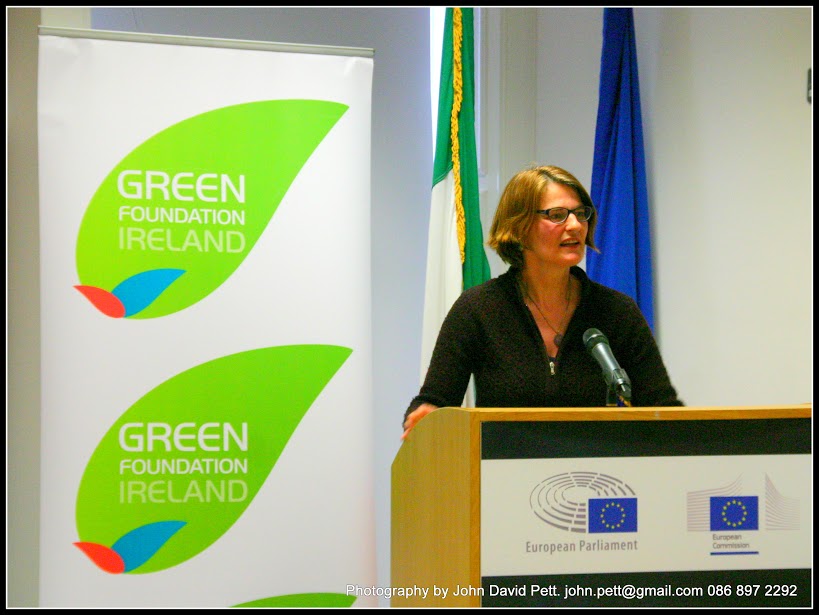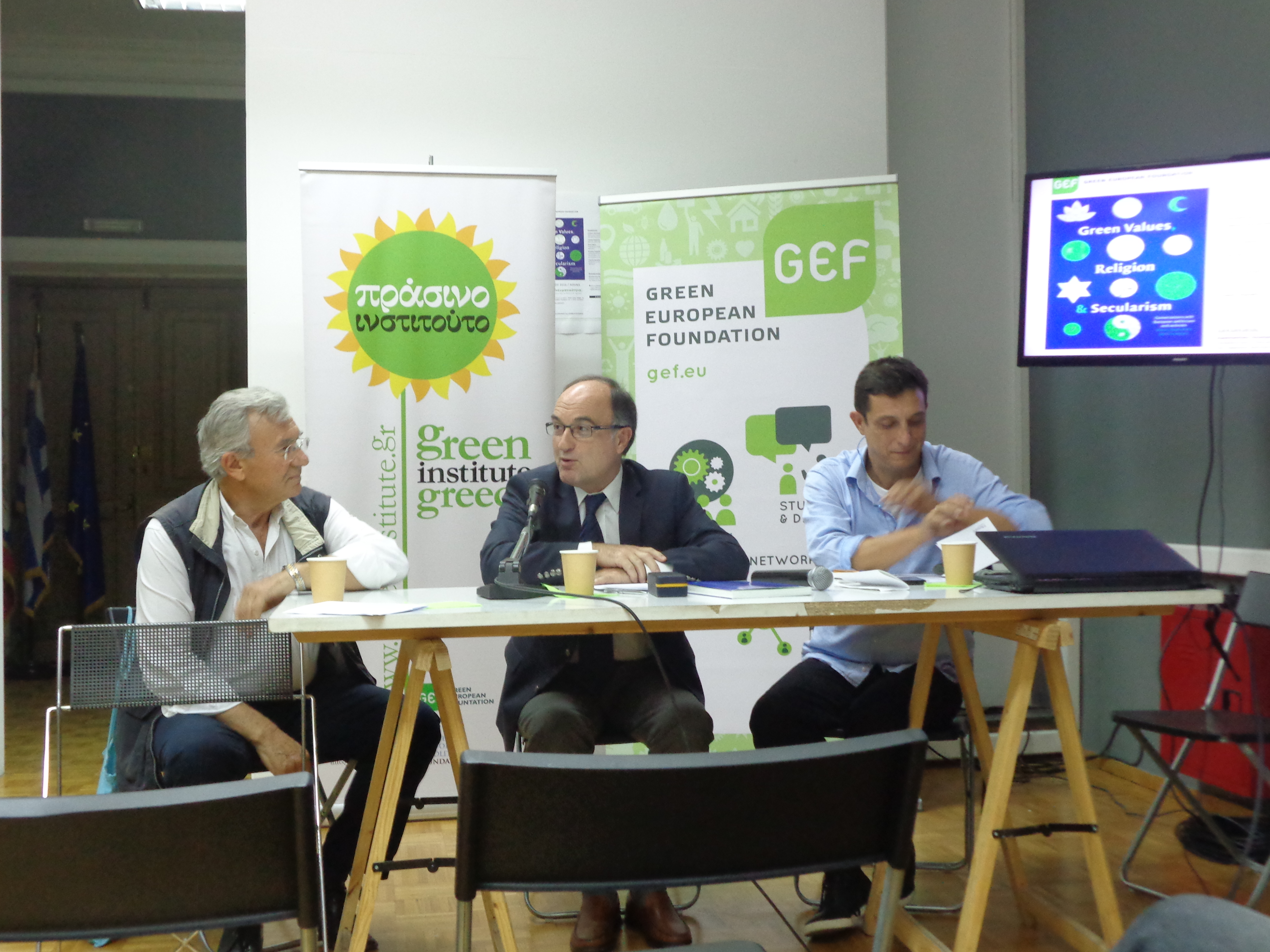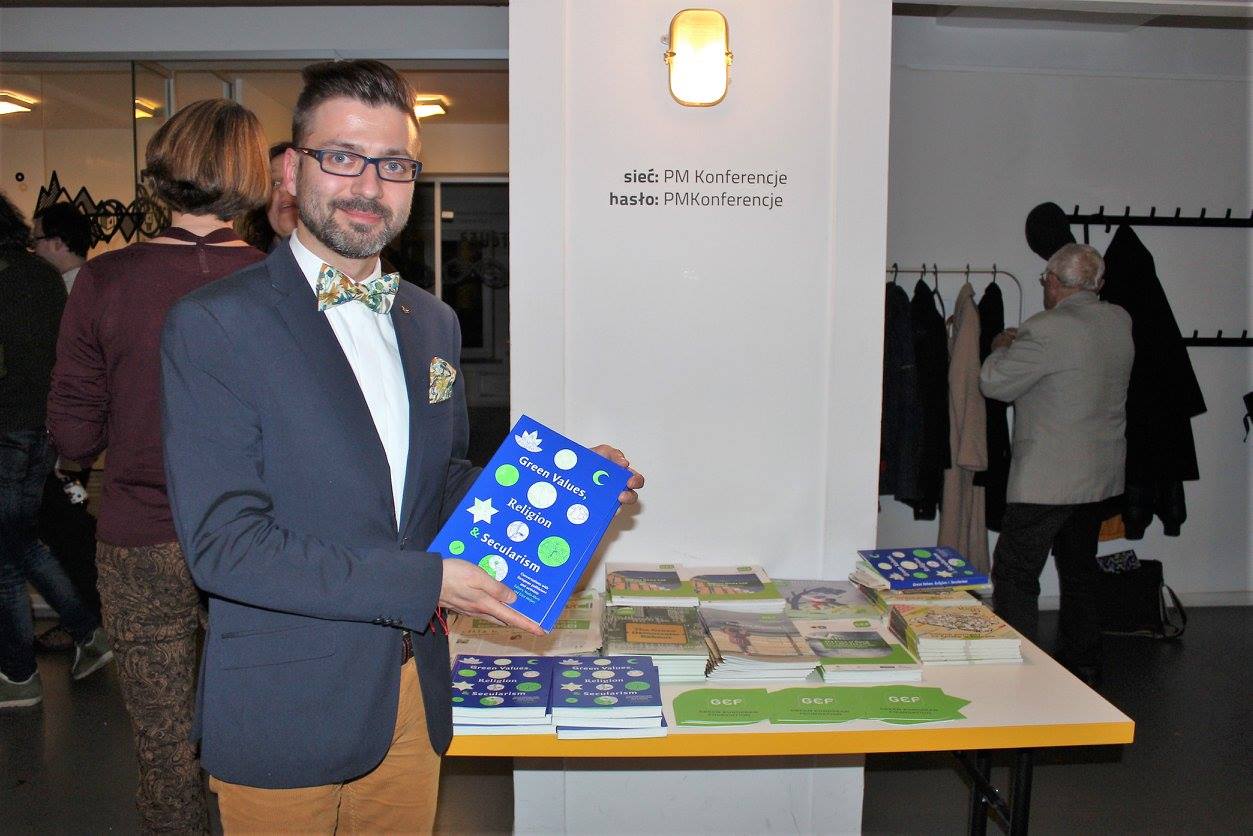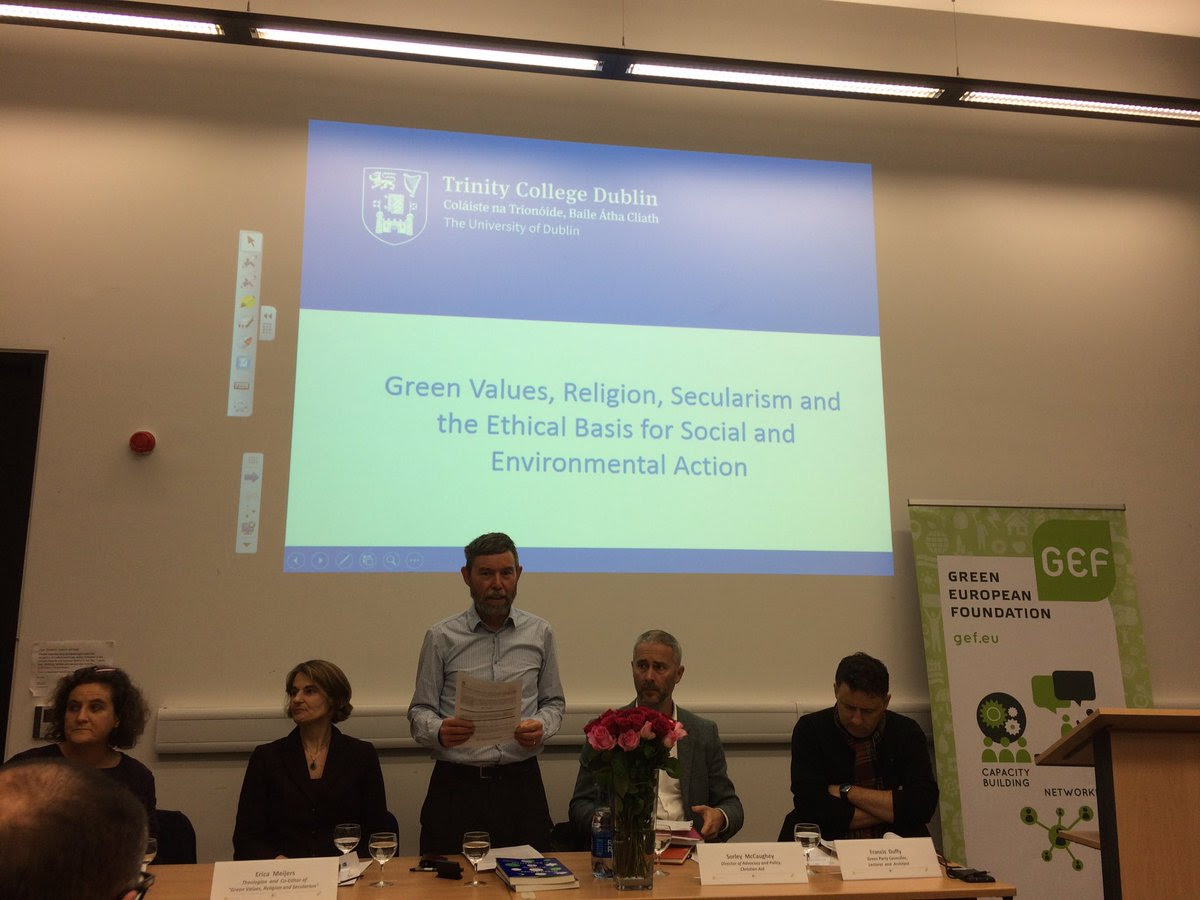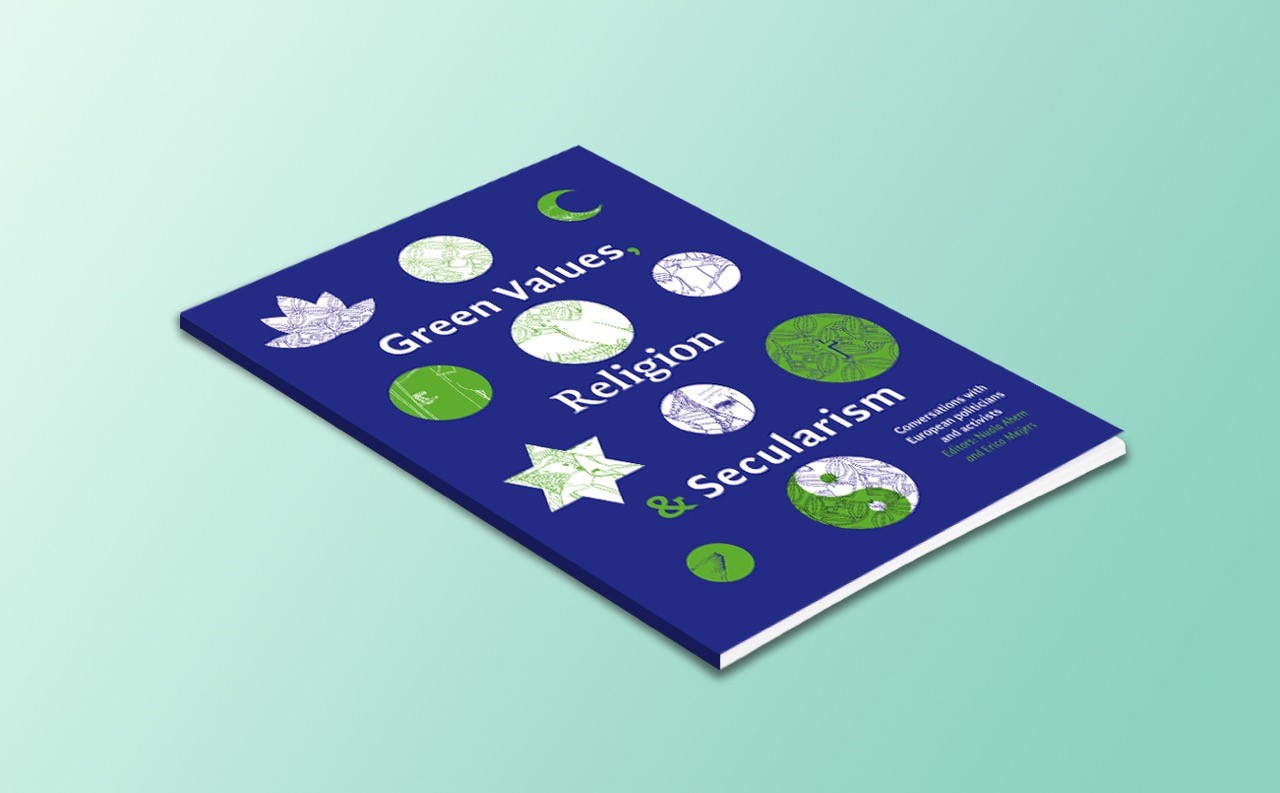
The project Green Values, Religion and Secularism
Following the successful implementation of the project Green Values, Religion and Secularism over the past two years, and the publication of a book under the same name, this conference addressed themes which arose from the seminars held during the past year to promote the book, and which were outlined in the concluding project report at the end of 2016.
The Conference
In an era of trending populism, the conference intended to remind a wide audience of both academia and Green activists of the necessity to consider the values underpinning European democracy and civil society and to engage in a dialogue to educate a wide public on Green viewpoints on how these values can be practiced in the world today. The event aimed at engaging in dialogue with academics on and religious communities on Green values and with Greens on the topic of religious and philosophical values. Therefore, the debate built on the following themes, which emerged during the project activities over the past two years.
Programme
The green critique of modernity approaches a religious critique of humanism, understood as humans being the measure of all things. Green values are also critical of the idea of the isolated individual as the basis of social and economic life. What are the core values which inspire ecological and social activism?
9:30-13:00h MORNING SESSION
Welcome and Introduction: Andrew Pierce on behalf of the Irish School of Ecumenics Trinity College and Nuala Ahern on behalf of Green European Foundation and GFI.
Chair Dr Geraldine Smyth (Adjunct Associate Professor, ISE): ‘What are the core values which inspire ecological and social activism?’
- Dr Erica Meijers (Theologian and Co-Editor of ‘Green Values, Religion and Secularism’): the work of the German poet Novalis shows that the critical tradition of the Enlightenment and the longing for a world that is whole has always belonged together.They can both contribute to an inclusive humanism today.
- Dr Andreas Weber (Biologist and cultural change expert): Only a science, politics and economics that puts the living world at its heart will be truly sustainable. Andreas discusses the idea that nature is a living commons and is not only about competition, but also about the commoning activities of a myriad of individual agents living in an ecosystem.
- Dr Cathriona Russell (Assistant Professor in Theology, TCD): Integrating the good life and duty in environmental ethics.
- Dr John Feehan (Geologist, botanist and environmental philosopher): Science, Spirituality and the Tao: Inching towards a Deeper Consilience.
- Followed by Q&A session.
14:15-17:00h AFTERNOON SESSION
Chair Dr Andrew Pierce (Head of Discipline Irish School of Ecumenics): Spirit has been conceived as superior to the earthbound and the carnal in western philosophy since the Greeks, Moreover spirit has been located in the male mind and sexuality and materiality in the female body. Does the papal encyclical ‘Laudato si’ alter the idea of sin to include the desecration of the material world?
- Dr John Dillon (former Regius Chair of Greek at Trinity College, founder and Director Emeritus of the Plato Centre);
- Dr Mary Condren (Centre for Gender and Women’s Studies TCD; Director of Womenspirit Ireland);
- Dr Jacob Erickson (Assistant Professor, Loyola Institute);
- Catherine Devitt (Environmental Justice Officer, Jesuit Centre for Faith and Justice);
- Followed by Q&A session.
More information
Registration: For more information, contact the Green Foundation Ireland.
Date & Time: 1 July 2017, 9:30-17:00
Venue: Trinity College Dublin, Irish School of Ecumenics


